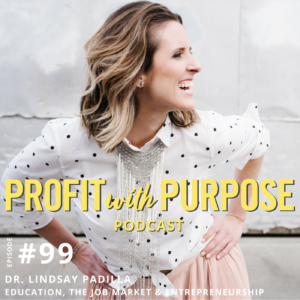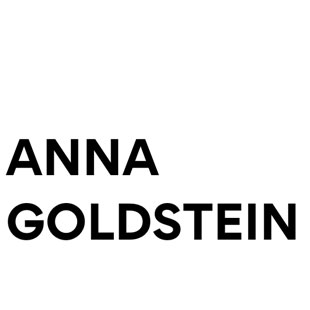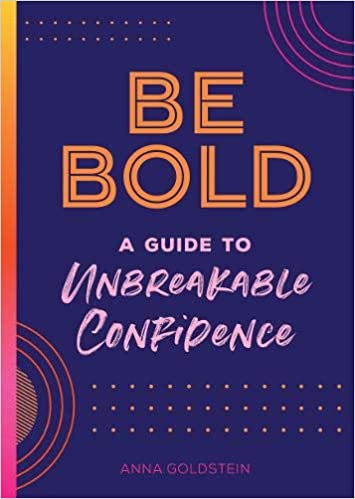Dr. Lindsay Padilla is a teaching + learning consultant. As an owner of many degrees, her experience as a sociology professor, and teaching adult learners online —She’s honored to pass on what she’s learned to trailblazing entrepreneurs who want to create digital courses. She now specializes in translating 1:1 client work experiences into signature courses, group programs + membership sites, as well as mapping out instructional content.

She always knew she wanted to be a teacher. She kept following that path growing up. She worked up towards becoming a high school teacher. She started her teaching career by teaching eight graders while her friends were still partying in college. She got her first sociology class because her mentor gave this one class to her. She fell in love with sociology and realized the potential of sociology at a high school level. She decided to get a master’s degree in sociology. That put her on the path of graduate school. In her graduate program for sociology, she had a course called ‘Teaching Sociology’. It is very rare to have a teaching course at a grad school.
Do you think our educational system can be limiting and we do not always need a college degree to something valuable in our lives?
Lindsay thinks it’s a very complicated matter. As a sociologist, Lindsay gets to study about society, people, institutions and large mainstream patterns of our culture, their origin and how they impact us. The labor market is tied to the school system. She believes we have been stuck in very traditional ways of delivering education. We live in a credential society, which demands a degree to get certain jobs and unlock certain things in life. This is what we are told and this is what is only partially true.
What made you transition out of academia and into entrepreneurship?
Lindsay recently started a podcast in January called Academics mean business. She has been an entrepreneur for almost two years now. Two years ago in summers, she was getting paid by clients for helping them create courses. She has been teaching online for the past six to seven years. She was always the professor on campus who was known for conducting online meetings with her students. She had a lot to share with entrepreneurs starting online programs around teaching and learning. She helped various clients with it. She saw the potential of transitioning from academia to entrepreneurship. Lindsay felt she could have a greater impact on people around her if she became an entrepreneur.
What do you think makes a good teacher?
Lindsay believes everyone is a teacher. Lindsay believes it is something very common among all human beings. We teach our children, pass knowledge on to our friends and family. Teaching is about an outcome. As a teacher, one needs to set by themselves certain goals that they can help an individual or a group of people achieve through their teachings. Good teaching comes from the inner self of the teacher. A teacher needs to be aligned with the knowledge he or she intends to share. Lindsay says there is a lot of impostor syndrome in the realm of online teaching. Many people doubt if the online courses and online teachers can actually help others and if their knowledge itself is self-sufficient. This prevents a lot of good teachers to put up their courses online. Good teaching comes from being your true self in communicating what you know. Many teachers try to build an authority around themselves and it drains out all the excitement from learning. A lot of research has been carried around this issue and the results indicate that teachers who try to undermine students are responsible for creating an environment which diminishes learning and the power of education as well. Good teaching comes from interaction with students, listening to them, working on the feedback received from students and doing it better the next time.
How do you make online learning experiential?
We have to work with the medium that is transporting the knowledge. Online interaction can never be like a face-to-face interaction. When it comes to online education and the incorporation of experiential learning, a big part of learning is to motivate students to try out various things themselves that they can learn from the course. We need to make sure we have the required information in our online courses that can help students take their first action step and explore further on the basis of things they can learn from our courses. We need to support them and guide them in this phase of experimentation.
What is the best advice you have ever been given?
“Done is better than perfect. Everyone is doing the best they can”.
It is more of a daily mantra for Lindsay. It helps her get going in her business and she knows the end result may not always be perfect but she needs to keep moving in her life, to strive for better outcomes no matter what. This also helps her to be compassionate with others because she believes people around her, in their limited capacity, try to do things in the best possible manner.
How can we connect with you?
Her website: http://www.lindsaympadilla.com
Facebook: https://www.facebook.com/lindsay.padilla
Instagram: https://www.instagram.com/lindsaympadilla/

Search
Popular Posts
- 02 Mar 2008The Flowering of Human Consciousness 7 Comments
- 01 May 2014Using Visualization to Create What You Want 7 Comments
- 26 Mar 20133 Questions to Change Your Career 4 Comments
- 14 Mar 2014I walked on Fire! 4 Comments
- 29 May 2014How to Bust Through Your Fear 4 Comments

